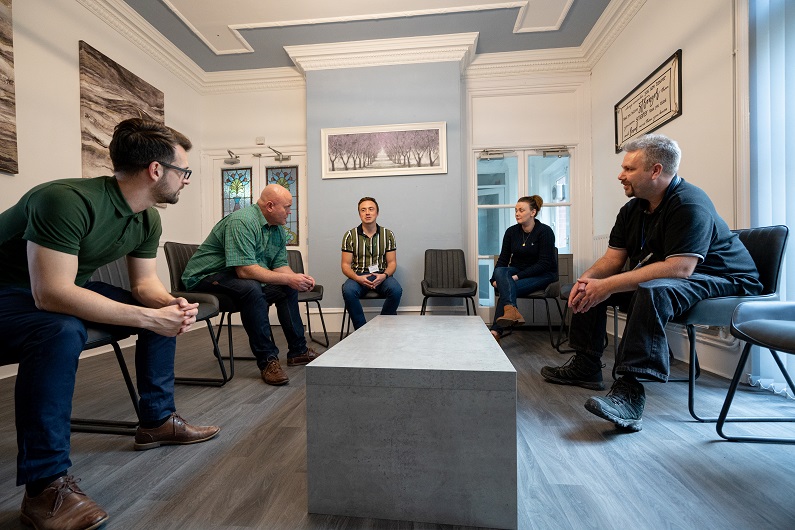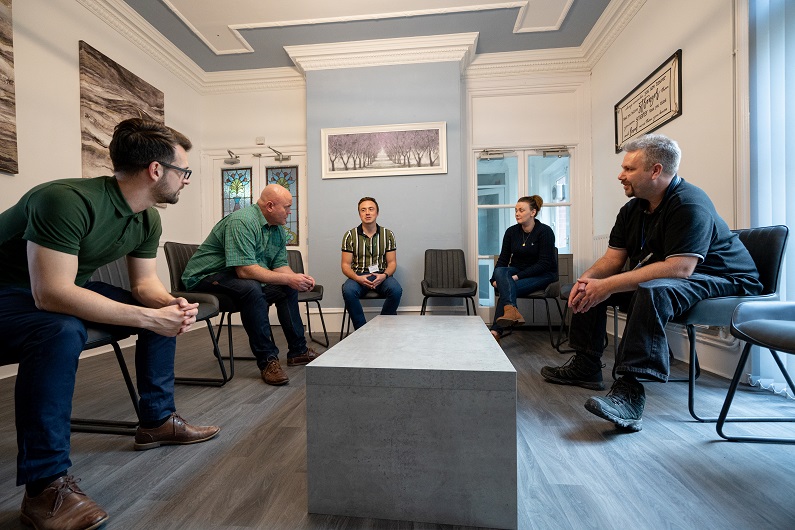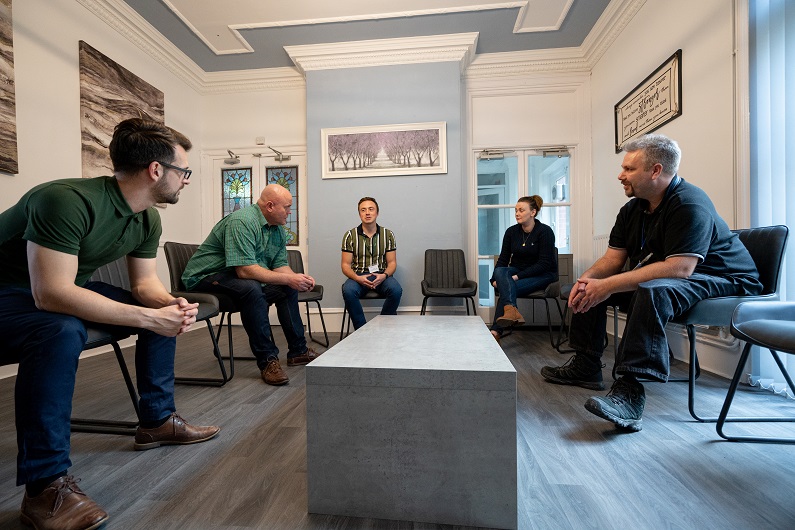20+ Years Experience
Specialist Drug Addiction Clinics

Opioid addiction is a grave issue that affects millions of people worldwide, causing devastating consequences for individuals and their families.
Understanding the signs and symptoms of opioid abuse, seeking professional opioid addiction treatment, and exploring various treatment options can be life-saving.
In this blog post, we will discuss how to recognise opioid use disorder and other substance abuse, the importance of professional help, various treatment options, prevention strategies, and how to support a loved one struggling with addiction to opioid medications.
Opioid addiction is characterised by compulsive drug-seeking behaviour, drug abuse, and associated negative outcomes.
Neurological alterations resulting from persistent opioid misuse can lead to tolerance, opioid dependence, and addiction.
The exact cause of opioid addiction in certain individuals is yet to be determined.
However, it is suggested that contributing factors may include how opioids affect an individual’s brain and opioid receptors, as well as family history and environmental and lifestyle factors.
Recognising the signs and symptoms of opioid addiction and overdose is crucial for identifying the problem and seeking help.
Physical dependence is a physiological alteration that occurs with drug use, and upon ceasing the drug, opioid withdrawal symptoms such as cravings and sweating may manifest.
It is important to recognise that physical dependence on opioids can happen without misuse.
It is crucial to remember that addiction does not always accompany physical dependence.
An individual with cancer may be physically dependent on opioids due to their moderate to severe pain. However, this does not mean they are addicted to them.
Other indications of opioid substance abuse include unwholesome utilisation, yearnings, and disavowal of the problem.
Unhealthy use of opioid drugs, which can lead to drug addiction, is considered to be when a person consumes more than the prescribed dose, consumes the drug more frequently than prescribed, or consumes the drug for non-medical purposes.
In the case of opioid overdose, recognising the symptoms can be life-saving. Signs of a potentially life-threatening overdose include:
Naloxone is a medication that can quickly and effectively counter the repercussions of an opioid overdose. It may be prescribed by a physician.
It is also frequently carried by police officers and emergency medical responders. Moreover, it is becoming increasingly accessible over the counter at certain pharmacies.
If naloxone is available during an overdose, it is recommended to contact 999 and administer the medication according to the instructions provided on the packaging.
Timely intervention in the event of an opioid overdose can mean the difference between life and death.
Seeking professional help for opioid addiction is vital, as it offers the necessary guidance and support to overcome the addiction and live a healthier life.
There is no one-size-fits-all approach to treating opioid use disorder, and the efficacy of therapy for substance use disorder is contingent upon the individual and the gravity of the disorder.
Professional help for opioid use disorder typically involves a combination of medication-assisted treatment (MAT) and counselling or therapy.
It is imperative to obtain assistance from healthcare professionals or drug rehab clinics that specialise in opioid use disorder to receive the most effective and comprehensive treatment.
In the following sections, we will discuss how to find a suitable treatment centre and the various types of opioid addiction treatments available.
To find a suitable treatment centre for opioid use disorder, it is recommended to research and select a centre based on individual needs and preferences.
Communication with local health departments, councils on alcoholism and drug abuse, or social services organisations can be established through telephone, electronic mail, or in-person interaction.
Our treatment centres specialise in drug dependence and offer the very best addiction treatment services.
When choosing a treatment centre, it is important to consider factors such as:
Consult with your insurance provider for further information regarding treatment costs and insurance coverage.
Various types of opioid addiction treatments are available to cater to the diverse needs and preferences of individuals.
These treatments include medication-assisted therapy (MAT), counselling and behavioural therapies, and residential and outpatient programs.
Each treatment option focuses on different aspects of opioid use disorder and aims to provide a comprehensive approach to recovery.
If you think your drug use may be problematic, make sure to speak to a professional. We can help you through the recovery process and get you off opioids and other drugs whilst helping you avoid withdrawal symptoms.
Medication-Assisted Therapy (MAT) is a treatment for opioid addiction that utilises FDA-approved medications such as methadone, buprenorphine, and naltrexone to ameliorate withdrawal symptoms, abate cravings, and prevent relapse.
The intent of MAT is to impede the euphoric and sedative effects of opioids, abate longings, and forestall regression.
Methadone, buprenorphine, and naltrexone are the medications typically employed in MAT.
These medications act upon the same brain structures and processes as addictive opioids, helping to restore balance in the brain and alleviate withdrawal symptoms.
It is essential to note that the primary issue with MAT is medication adherence, as well as recent worries about heart rhythm problems with LAAM.
Counselling and behaviour therapy are a form of drug treatment that addresses the psychological aspects of addiction through:
These therapies are effective in helping individuals overcome addiction and maintain long-term recovery.
Group therapy, relapse prevention training, vocational and educational services, as well as community-based or family-based support (for you and family members) can be accessed to facilitate sustained recovery.
Additionally, mental health services, assessments, and other resources can be used to aid in recovery.
Counsellors can also refer you to other resources that may be beneficial to you, such as mental health services administration programs, support groups, housing assistance, job training, and other community resources.
Residential and outpatient treatment options are available for prescription opioid use disorder, depending on the individual’s needs and circumstances.
Residential programs offer treatment in a rehabilitation centre, while outpatient programs offer treatment on a non-residential basis.
Most hospitals offer an evaluation to assess the patient’s primary need and subsequently connect them to treatment.
Choosing between inpatient and outpatient treatment settings depends on the severity of addiction, personal circumstances, and available resources.
It is essential to weigh the pros and cons of each treatment setting and consult with a healthcare professional to determine the most suitable option for yourself or a loved one.
Preventing opioid addiction is crucial in today’s world, where opioid abuse is rampant.
Here are some steps you can take to minimise the risk of addiction.
In the following subsections, we will discuss the responsible use of prescribed opioids and non-opioid pain management options, providing practical advice on how to minimise the risk of addiction and maintain a healthy lifestyle.
The responsible use of prescription pain relievers necessitates:
It is also recommended to hold a discussion with one’s physician in advance regarding pain management.
Practising responsible use of prescription opioids can not only help prevent addiction but also ensure that you are receiving the most effective pain relief while minimising potential risks associated with opioid use.
Non-opioid pain management options consist of:
These options may be employed to relieve pain, especially in the management of chronic pain.
Considering non-opioid options to relieve pain is essential, as they are typically safer and have fewer adverse effects than opioids.
Furthermore, they can be employed in conjunction with other treatments to provide more effective pain relief.
Supporting a beloved one with an opioid use disorder is of great importance, as it can assist them in overcoming their addiction and living a healthier life.
Furthermore, it can diminish the possibility of relapse and provide emotional support during the recovery process.
In the following subsections, we will discuss how to encourage treatment and provide ongoing support for a loved one struggling with opioid use disorder or other substance abuse.
Promoting treatment for a beloved one with opioid dependence may involve discussing the advantages of treatment with them, aiding in locating a treatment centre, and providing emotional aid during the procedure.
Encouraging a loved one to pursue professional assistance can be accomplished by providing emotional support, volunteering to accompany them to appointments, and aiding them in locating the appropriate treatment program.
Treatment for opioid use disorder can include medication-assisted therapy (MAT), counselling and behavioural therapies, as well as residential and outpatient programmes.
By motivating a loved one to seek professional help and participate in appropriate treatment programs, you can play a significant role in their recovery journey.
Providing ongoing support to a loved one with opioid addiction can involve attending support groups, aiding them in adhering to their treatment plan, and offering emotional support.
This support can help them remain motivated and focused on their recovery goals, as well as access the resources they need to stay on track.
It is also important to be aware of the signs and symptoms of opioid overdose and to be prepared to intervene if necessary.
Practising self-care when rendering assistance to a beloved individual suffering from substance abuse is essential to avoid burnout and ensure that the most suitable support is provided.
Self-care can involve taking breaks, engaging in activities that bring pleasure, and seeking assistance from other individuals.
In conclusion, understanding the signs of opioid drug addiction and the withdrawal symptoms and getting professional treatment are essential in overcoming opioid use disorder.
By taking these steps, you can help yourself or a loved one live a healthier, addiction-free life and contribute to the fight against the opioid medication crisis.
Managing withdrawal symptoms can be done at home by getting plenty of rest, staying hydrated and avoiding triggers that may make withdrawal symptoms worse.
It is important to remember that opioid withdrawal symptoms can vary in intensity and duration, so it is important to be patient and take care of yourself. Seek professional help if needed.
Opioids activate powerful reward centres in the brain, causing a release of endorphins which muffle pain perception and boost pleasure.
As a result, those addicted to opioids feel a temporary but powerful sense of well-being.
Signs of opioid addiction include physical dependence, cravings, taking opioids in an unhealthy way and denial of the issue.
If you think you have a problem with your opioid use, please speak to a member of our team today. We can check your opioid tolerance, help with your recovery and offer alternative ways to manage pain.
Opioid overdose is characterised by slow or shallow breathing, pinpoint pupils, unconsciousness, and pale or blue skin.
Drug overdoses are far too common. If you want to avoid addiction and potential overdose, please make sure to speak to a health professional.
Treatment for opioid addiction includes medication-assisted therapy, counselling, behavioural therapies and residential and outpatient programmes.
These substance abuse treatments can help individuals manage their addiction and reduce their risk of relapse. They can also help individuals develop healthier coping strategies and build a more positive lifestyle.
There are a range of other services that we can provide. Have a look at the list below for more information:






















We Aim To Reply To All Enquiries With-in 24-Hours